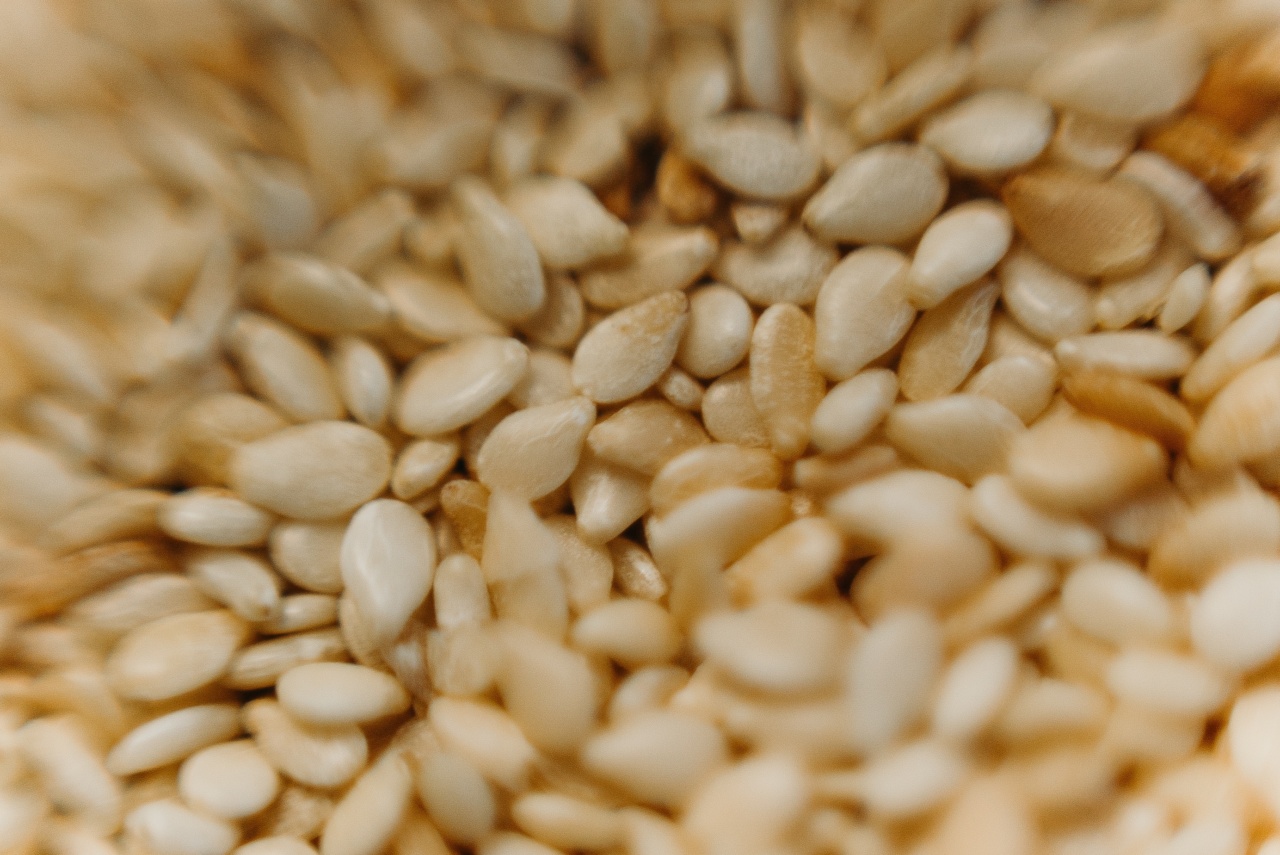When it comes to maintaining good health, one of the most important factors to consider is our diet. What we eat plays a significant role in determining our overall well-being.
Incorporating whole grains into our daily meals is an excellent way to promote and maintain good health. Whole grains are nutrient-rich and offer numerous health benefits. In this article, we will explore the importance of whole grains and why they should be an essential part of everyone’s diet.
What Are Whole Grains?
Whole grains are grains that contain all three parts of the grain kernel: the bran, germ, and endosperm. This means that they provide a rich source of fiber, B vitamins, iron, magnesium, and other essential nutrients.
Examples of whole grains include brown rice, quinoa, whole wheat, oats, barley, and corn.
The Health Benefits of Whole Grains
Eating whole grains has numerous benefits for our health. Here are some of the key advantages:.
1. Improved Digestive Health
Whole grains are an excellent source of dietary fiber, which aids in digestion and prevents constipation. The fiber present in whole grains adds bulk to the stool, making it easier to pass through the digestive system.
Additionally, it helps maintain a healthy balance of gut bacteria, which is essential for optimal digestion and overall gut health.
2. Reduced Risk of Chronic Diseases
Studies have shown that consuming whole grains can lower the risk of chronic diseases such as heart disease, type 2 diabetes, and certain types of cancer.
The fiber, antioxidants, and other nutrients present in whole grains help protect against these diseases by reducing inflammation, regulating blood sugar levels, and promoting a healthy cardiovascular system.
3. Weight Management
Whole grains can be a valuable addition to a weight management plan. The fiber in these grains helps keep us feeling fuller for longer, reducing the likelihood of overeating and aiding in weight control.
Whole grains are also nutrient-dense, providing a good balance of essential nutrients while being relatively low in calories.
4. Lowered Risk of Obesity
Incorporating whole grains into our diet can help reduce the risk of obesity.
Research suggests that individuals who consume more whole grains tend to have a lower body mass index (BMI) and lower overall body fat compared to those who consume fewer whole grains. The high fiber content of whole grains contributes to this effect by promoting satiety and preventing excessive calorie intake.
5. Enhanced Heart Health
A diet rich in whole grains is associated with a reduced risk of heart disease. The fiber, antioxidants, and phytochemicals present in whole grains help lower cholesterol levels, regulate blood pressure, and promote the health of blood vessels.
These factors contribute to improved heart health and a lower risk of cardiovascular diseases.
6. Better Blood Sugar Control
For individuals with diabetes or those at risk of developing the condition, consuming whole grains can be highly beneficial.
Whole grains have a lower glycemic index compared to refined grains, meaning they cause a slower and more gradual rise in blood sugar levels. This steady release of glucose into the bloodstream helps control blood sugar levels and insulin response.
7. Increased Nutrient Intake
Whole grains are not only rich in fiber but also packed with essential nutrients.
They provide a good source of B vitamins, including thiamine, riboflavin, niacin, and folate, which play crucial roles in energy metabolism, brain function, and the production of red blood cells. Whole grains also contain minerals like iron, magnesium, and selenium, which are necessary for various bodily functions.
8. Boosted Brain Health
By including whole grains in our diet, we can support our brain health and cognitive functions. Whole grains contain nutrients such as vitamin E, folate, and omega-3 fatty acids, which are beneficial for brain health.
These nutrients help protect against cognitive decline, improve focus and concentration, and enhance overall brain function.
9. Longevity and Disease Prevention
The consumption of whole grains has been linked to a longer lifespan and a reduced risk of mortality from various causes.
Studies have shown that individuals who consume higher amounts of whole grains have a lower risk of dying from cardiovascular disease, cancer, and respiratory diseases. Adding whole grains to your diet can significantly contribute to a longer, healthier life.
10. Versatile and Delicious
Whole grains are incredibly versatile and can be incorporated into a wide range of delicious meals.
Whether you’re enjoying a warm bowl of oatmeal for breakfast, a quinoa salad for lunch, or a serving of brown rice with your dinner, there are endless possibilities to explore. With whole grains, you can enjoy both the health benefits and the delightful flavors they offer.
Conclusion
Incorporating whole grains into our diet is a simple yet powerful way to improve and maintain good health.
The vast array of nutrients, fiber, and antioxidants found in whole grains provide numerous health benefits, including improved digestive health, reduced risk of chronic diseases, weight management, enhanced heart health, better blood sugar control, increased nutrient intake, boosted brain health, and even longevity. So why not make whole grains an integral part of your diet today?.































